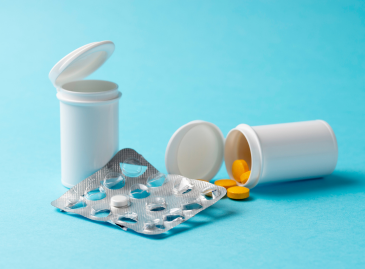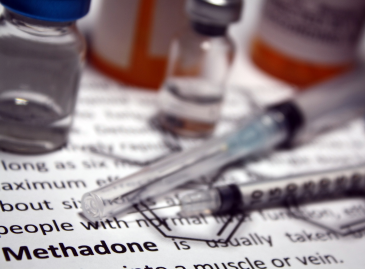Alcohol Addiction Treatment in Turkey
It can feel overwhelming to battle alcoholism, but you're not alone, and help is available. Whether you’ve tried to stop before or this is the first time you’re reaching out, what matters is that you’re ready to take the first step toward a better life. At our partner clinics, we offer a unique and personalized approach to treating alcohol addiction. Our focus is not just on quitting alcohol, but on helping you recover fully, both physically and emotionally, in a private, respectful setting.
We are with you throughout the entire process
You will find some useful information that will help you prepare the necessary organization to prevent all problems and make the necessary arrangements to ensure that everything goes smoothly during your stay in Turkey.
After our with doctor answers all your questions, doctor will explain to you how the operation process will proceed.
You will have a preliminary meeting with the doctor and team we work with before the operation.
Read the document we sent you before coming to Istanbul and be sure to follow the rules.
During the recovery process, our teams will call you, ask about your condition and ask for photos.
FAQ for Alcohol Addiction Treatment
You can find detailed information about the operation and organization you will have before coming to Turkey. You can contact your sales representative for any other questions you may have.
- It helps individuals stop drinking and heal the root causes through detox, therapy, and support.
- It harms the liver, heart, brain, and mental health, affecting overall well-being.
- Drug implants are tiny devices that are inserted beneath the skin and distribute medicine gradually to lessen cravings and deter drinking. They can offer prolonged protection against relapse.
- The duration of treatment is determined by each patient's needs. While comprehensive programs might take anywhere from a few weeks to several months, detox might only last a few days.
- The cost of alcohol addiction treatment in Turkey varies depending on the clinic, length of stay, and services offered. Many programs are all-inclusive, covering detox, therapy, accommodations, and meals.
This implant is a medical intervention designed to support individuals in overcoming drug addiction by delivering continuous, controlled doses of anti-craving medication. In the video below, discover how the implant works, its clinical benefits, and its role in long-term addiction treatment.
Authorized by the Ministry of Health and Tourism in Turkey
Understanding Alcohol Addiction
Alcohol addiction happens when drinking becomes something you can no longer control. You might have tried to stop but found it difficult, or maybe alcohol is starting to affect your relationships, work, or health. You may be drinking more often or feeling unwell when you try to cut back. These are clear signs that your body and mind are asking for support. It’s important to know that alcohol addiction is a health condition, not a weakness. And like any condition, addiction can be treated with the right tools and guidance.
A Balanced Approach to Healing
Our comprehensive programs for treating alcoholism aim to address every aspect of the person. We combine trusted medical care with supportive therapies to help you rebuild your health and take back control of your life.
Here’s what you can expect:
- Medically supervised detox: If you’ve been drinking heavily, detox is the first step toward recovery. We ensure that alcohol is safely removed from your system under medical supervision, with a focus on comfort and safety. Our care team is by your side throughout the process, providing the relief and comfort you need, so you never face withdrawal alone.
- Private counseling: Working one-on-one with a qualified therapist gives you the space to explore the why behind your addiction. You’ll learn healthier ways to manage stress, anxiety, and emotional pain without turning to alcohol. Therapy aids in creating an effective groundwork for long-lasting transformation.
- Support groups: It can be empowering to share your story with those sympathetic to your situation. On the road to recovery, group sessions provide a secure setting for connecting, exchanging stories, and offering support.
- Optional drug implants for relapse prevention: For those who want an extra layer of protection against relapse, drug implants can be included as part of your personalized care plan. These small implants release medication slowly over time, reducing cravings and helping to prevent a return to drinking. They offer discreet, long-lasting support, especially during the early stages of recovery when temptation may be strongest.
This comprehensive approach ensures that you’re not just stopping alcohol use, you’re actively working toward a healthier, more balanced life with tools and support systems that last well beyond your time in treatment.
Natural Therapies That Support Recovery
In addition to core treatment, we also include safe, non-invasive therapies that help support your recovery:
- Breathing techniques and guided relaxation can calm your nervous system, especially during times of stress or cravings.
- Nutritional support helps repair your body from the damage caused by alcohol, giving you more energy and a clearer mind.
- Art and music therapy are optional tools for self-expression and emotional healing. They offer a healthy outlet for feelings that are often hard to talk about.
- Massage therapy helps release tension and supports better sleep, which is often disrupted by addiction.
Aftercare That Keeps You Strong
Recovery doesn’t end when treatment does. We’ll help you create a plan for long-term support that fits your life. This might include continued therapy, check-ins, joining a support group, or building new healthy routines. We are committed to ensuring you don't feel lost after treatment. The goal is to make sure you don’t feel lost after treatment. You’ll have a clear direction and people who care, every step of the way, giving you a sense of control and guidance.
Costs of Alcohol Addiction Treatment in Turkey
Turkey offers high-quality alcohol addiction care at more affordable rates than many Western countries. Prices vary depending on the clinic, length of stay, and services included. Most programs are all-inclusive, covering detox, therapy, natural treatments, accommodation, meals, and aftercare. At Istanbul Med Assist, we connect international patients with trusted clinics and handle everything from treatment planning to travel support, ensuring a smooth and private recovery experience.
Ready to Take the First Step?
If alcohol addiction is taking over your life, don’t wait to get the help you deserve. The sooner you take action, the sooner you can regain control, restore your health, and reconnect with the life you want to live. Our caring team is here to support you every step of the way, from answering your questions to helping you find the right treatment plan that fits your needs.









